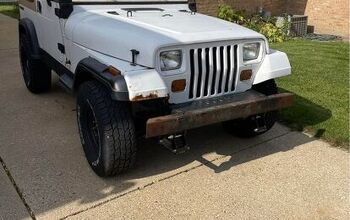Musk Pushed Back Against Tesla Employees' Autopilot Concerns: Report

Tesla CEO Elon Musk’s drive to develop and market new driving technology is well known, but former employees say he brushed aside their concerns about the safety of the company’s Autopilot system.
Several employees, including a former Autopilot engineer, told CNN Money that their concerns fell on deaf ears, as Musk always reverted back to a “bigger picture” position on safety.
The automaker’s semi-autonomous driving system came under scrutiny in the wake of a fatal May crash. Musk claims that although the Autopilot didn’t recognize a transport truck in that case, the system makes roads safer. He’s pledged to do more to educate owners on how to properly use Autopilot, but has no plans to stop offering the system.
Musk told the Wall Street Journal “we knew we had a system that on balance would save lives.”
Speaking to CNNMoney, ex-Autopilot engineer Eric Meadows claims he was pulled over by police in 2015 while testing Autopilot on a Los Angeles highway, a few months before the system’s release. The Tesla had difficulty handling turns, and the police suspected him of being intoxicated.
Meadows was later fired for performance reasons, but he claims his worries about Autopilot’s safety — especially the possibility that owners would “push the limits” of the technology — grew over time.
“The last two months I was scared someone was going to die,” he said.
The report mentions a former Tesla executive who worked closely with Musk, and claims the CEO was frequently at loggerheads with “overly cautious” employees. Tesla’s self-parking feature went ahead as planned, another source claims, despite worries that sensors wouldn’t function properly if the vehicle was near the edge of a steep slope. Again, the greater good of preventing driveway deaths overruled these concerns.
The employee mix at Tesla falls into two categories — younger, data-driven employees and seasoned automotive industry types. The report cites multiple sources who claim that data is the guiding factor in Tesla’s decisions, meaning slight risk is allowed if it means a greater potential for overall safety.
While this bothers some engineers and consumer safety groups, even the agency investigating the May crash sides with Musk’s views on safety. Recently, National Highway Traffic Safety Administration administrator Mark Rosekind said the industry “cannot wait for perfect” when it comes to marketing potentially life-saving autonomous technology.
[Image: Tesla Motors]

More by Steph Willems
Latest Car Reviews
Read moreLatest Product Reviews
Read moreRecent Comments
- MaintenanceCosts The Supercharger network is something with much more growth potential than their actual car building operations, which has been marvelously run to this point and has a years-long head start on all its competitors, and Elon lays the whole team off?I don't know if it's distraction or the drugs, but he is not making good decisions and should not be CEO anymore.
- Dirk Wiggler I drive down the Palisades and near the George Washington Bridge I see FIAT housing complex (apartments, same font as the auto company). Seems like they tout energy/electric efficiency. I always wonder, 'what's that...is it really the same FIAT?'
- The Oracle Massive job cuts at their state-funded facility in Buffalo. Tesla is quick to throw resources at programs to get them launched, and quick to contract when the models are in serial production:
- Cprescott Golf carts were so 1900 and so 2020. Everyone who wants one has one and is trading them in for hybrids.
- Cprescott If it were Honduh or Toyoduh's I would set it on fire.


































Comments
Join the conversation
Sounds to me an awful lot like the VW scandal. Various employees say something can't be done, but overbearing boss doesn't want to hear about it. Of course, Musk seems to get a bye for almost everything, because of the company's "green cred", so maybe he'll skate through this one.
If anyone read a credible news source* on the issue, they would see that the Tesla autopilot feature had nothing to do with the deadly crash. Autopilot doesn't control the brakes, only the steering. Which means that 90% of the comments on this and all the other related articles are completely wrong. *which could include NYT, CNBC, UPI,...